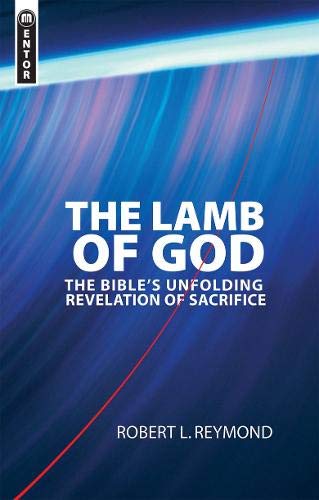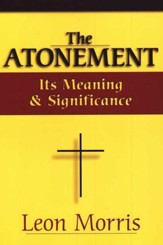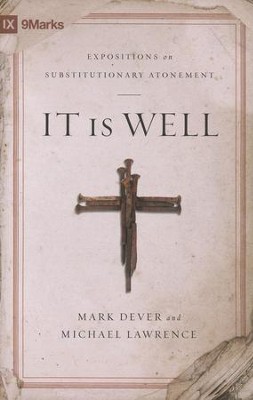Quotes about Jesus_Christ-Death-Propitiation
The real horror of being outside of Christ is that there is no shelter from the wrath of God.
Jesus did not die just to give us peace and a purpose in life; He died to save us from the wrath of God. He died to reconcile us to a holy God who was alienated from us because of our sin. He died to ransom us from the penalty of sin – the punishment of everlasting destruction, shut out from the presence of the Lord. He died that we, the just objects of God’s wrath, should become, by His grace, heirs of God and co-heirs with Him.
The Practice of Godliness, NavPress, 1996, p. 24, www.navpress.com. Used by Permission. Get this book!
I believe a word that forcefully captures the essence of Jesus’ work of propitiation is the word exhausted. Jesus exhausted the wrath of God. It was not merely deflected and prevented from reaching us; it was exhausted. Jesus bore the full, unmitigated brunt of it. God’s wrath against sin was unleashed in all its fury on His beloved Son. He held nothing back.
Copied from The Gospel for Real Life by Jerry Bridges, © 2002, p. 56. Used by permission of NavPress – www.navpress.com. All rights reserved. Get this book!
Christ exhausted the cup of God’s wrath. For all who trust in Him there is nothing more in the cup. It is empty.
Copied from The Gospel for Real Life by Jerry Bridges, © 2002, p. 57. Used by permission of NavPress – www.navpress.com. All rights reserved. Get this book!
Propitiation addresses the wrath of God. It is the work of Christ saving us from God’s wrath by absorbing it in His own person as our substitute. Expiation, which basically means “removal,” accompanies propitiation and speaks of the work of Christ in removing or putting away our sin. Such is the symbolism of the two goats used on the Day of Atonement. The first goat represented Christ’s work of propitiation as it was killed and its blood sprinkled on the mercy seat. The second goat represented Christ’s work of expiation in removing or blotting out the sins that were against us. The object of propitiation is the wrath of God. The object of expiation is the sin, which must be removed from His presence.
Copied from The Gospel for Real Life by Jerry Bridges, © 2002, p. 71-72. Used by permission of NavPress – www.navpress.com. All rights reserved. Get this book!
Jesus then puts Himself into our place, to free us from the arrest of justice, and bear those strokes, which, by virtue of the law, wrath had prepared for us…It was a death which justice required, and at the sight of it justice was so calmed, that the sharp revenging sword drops out of its hand.
When He died, Jesus actually accomplished expiation and propitiation for sins, but for whom? If Jesus propitiated God for the sins of all, then all are saved. Clearly, however, not all are saved. This is because it was never our Savior’s intention to propitiate God’s wrath for everyone who ever lived. Rather, it was His intention to redeem all of His people completely.
By His death on the Cross, Christ has become the Lamb that was slain for us, our Redeemer, the One who has made peace between us and God, who has taken our guilt on Himself, who has conquered our most deadly enemy and has assuaged the well-deserved wrath of God.
Nine Marks of a Healthy Church, Crossway, 2000, p. 75. Get this book!
The word “propitiation” (pro-pish-ee-ay-shun; sometimes translated, atonement) means this: Jesus fully satisfied the just anger of God for people like you by dying in your place, taking on himself all the wrath you deserve. We learn about this in Romans 3:24-25 and Hebrews 2:17. God’s just fury, indignation and anger for sins were poured out on Christ for every sinful person who will come to him by faith.
Is God Angry Anymore?, Christian Communicators Worldwide, www.CCWtoday.org. Used by Permission.
When Christ gave His cheek to the betrayer’s kiss He knew that He was putting the cup of wrath to His lips, the full dregs of which He would not taste until the morrow when He would cry out, “Eloi, Eloi, lama sabachthani?” [That is,] “My God, my God, why hast Thou forsaken me?”
Jesus knew that if there had been any conceivable way whereby God could have redeemed the world other than by the horrible death of His Son, God would never have resorted to such an expedient. He knew that there never could be any other name given under Heaven whereby men must be saved. He knew there was none other good enough to pay the price of sin; none other could open the door and let us in. Jesus knew that if those dear ones whom He had left were to drink of the vine again with Him in the kingdom of God, there was but one way – He must drink of the cup of God’s wrath.
But the animal sacrifices weren’t that substitute. No person was ever delivered from divine judgment by the death of any animal. The repeated sacrifice of animals was simply a continual symbol of the fact that God does deliver by the death of an innocent substitute, but no animal was ever satisfactory to God and so the sacrifices went on and on and on and on by the millions. And the people waited for a sacrifice that would be satisfactory to God, to which all those unsatisfactory sacrifices pointed. That day came on that Friday when God chose His lamb and offered Him as a sacrifice, a substitute for sinners, and poured out His wrath on that innocent substitute.
The Final Passover, the First Communion. The sermon originally appeared at: (https://www.gty.org/library/sermons-library/42-269/the-final-passover-the-first-communion) at www.gty.org. © 1969-2008. Grace to You. All rights reserved. Used by Permission.
God arrived at Calvary – not in light, but in darkness. He showed up to unleash judgment, not in the eschatological sense in the future against the ungodly, but in the soteriological sense against the godly One. What is really going on at Calvary, folks – and this is where you go deeper with the understanding of it – it’s beyond the physical suffering, it’s beyond the sacrifice of Christ. What’s happening here is divine wrath is being poured out in its final form. Eternal wrath is about to be released and the darkness is everywhere. You could say it another way. God brought hell to Jerusalem that day.
The King Crucified Consummation at Calvary. The sermon originally appeared at: (https://www.gty.org/library/sermons-library/42-288/the-king-crucified-consummation-at-calvary) at www.gty.org. © 1969-2008. Grace to You. All rights reserved. Used by Permission.
God unleashed the full extent of His fury on Jesus Christ. As Isaiah put it in Isaiah 13:9, “Wrath with fierce anger.” Hell came there. What is hell? Hell is where God punishes people forever. Hell is where God pours out His fury on people forever. God is the power behind the punishment in hell. When you say that hell is being separated from God, only in the sense of His comforting presence, not in the sense of His punishing presence. He is the one who destroys both soul and body in hell. He is the King of hell, Satan is not. And God, who is the punisher of all the souls in eternal hell, shows up in the darkness of Calvary to punish His Son, and He gives His Son eternal hell on behalf of all who would ever believe.
The King Crucified Consummation at Calvary. The sermon originally appeared at: (https://www.gty.org/library/sermons-library/42-288/the-king-crucified-consummation-at-calvary) at www.gty.org. © 1969-2008. Grace to You. All rights reserved. Used by Permission.
Infinite wrath moved by infinite righteousness releases infinite punishment on the infinite Son who can absorb an eternal hell for all who will ever believe in three hours. It is here that He bears in His own body our sins. It is here that He has made sin for us who knew no sin. It is here that He is wounded for our transgressions, crushed for our iniquity. It is here that He is made a curse for us. These are the three hours of the wrath of God on Him.
The King Crucified Consummation at Calvary. The sermon originally appeared at: (https://www.gty.org/library/sermons-library/42-288/the-king-crucified-consummation-at-calvary) at www.gty.org. © 1969-2008. Grace to You. All rights reserved. Used by Permission.
What is the most important Book in the universe? The Bible. Which book within the Bible is the most important? Romans. Which chapter in Romans is the most important? Chapter 3. Which paragraph in Romans 3 is the most important? Verses 21-26. Which verse in that paragraph is the most important? Verse 25. Which word in verse 25 is the most important? “Propitiation” (Murray Harris).
He hideth our unrighteousness with His righteousness, He covereth our disobedience with His obedience, He shadoweth our death with His death, that the wrath of God cannot find us.
A Puritan Golden Treasury, compiled by I.D.E. Thomas, by permission of Banner of Truth, Carlisle, PA. 2000, p. 162.
It would be hard to exaggerate the differences between the pagan and the Christian views of propitiation. In the pagan perspective, human beings try to placate their bad-tempered deities with their own paltry offerings. According to the Christian revelation, God’s own great love propitiated His own holy wrath through the gift of His own dear Son, who took our place, bore our sin and died our death. Thus God Himself gave Himself to save us from Himself.
Taken from God’s Good News for the World by John R.W. Stott. Copyright(c) 1995, John R. W. Stott. Used by permission of InterVarsity Press, PO Box 1400, Downers Grove, IL 60515, p. 115.
If you have come to saving faith in the Lord Jesus Christ, having repented of your sin and come humbly to Christ, not one tiny bit of your suffering is because of the judicial punishment for your sin. It may be for your sanctification and your loving discipline, but not for punishment. Christ is the one who bore the wrath of God against sin on your behalf.
The cross is the lightning rod of grace that short-circuits God’s wrath to Christ so that only the light of His love remains for believers.
We need God to save us from God.
















